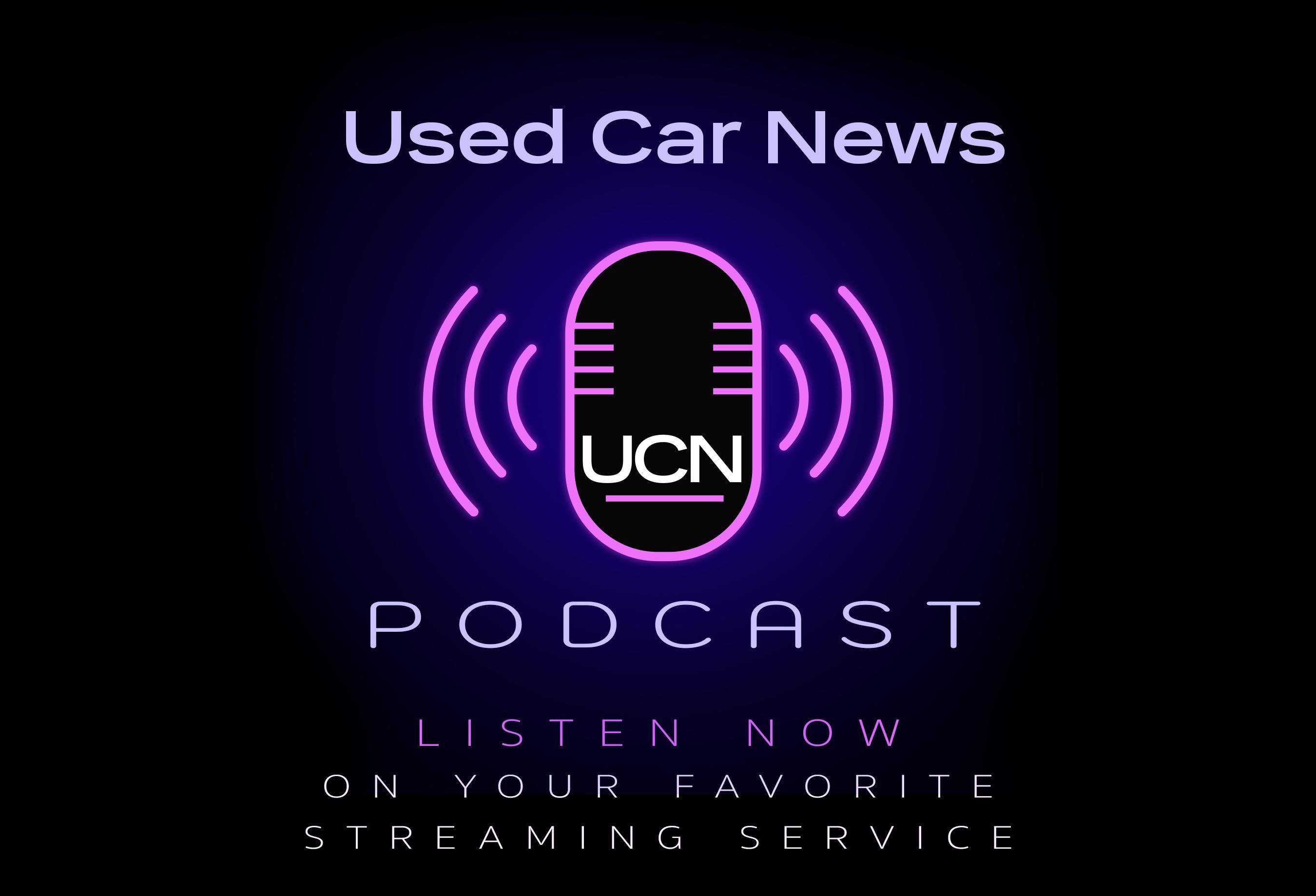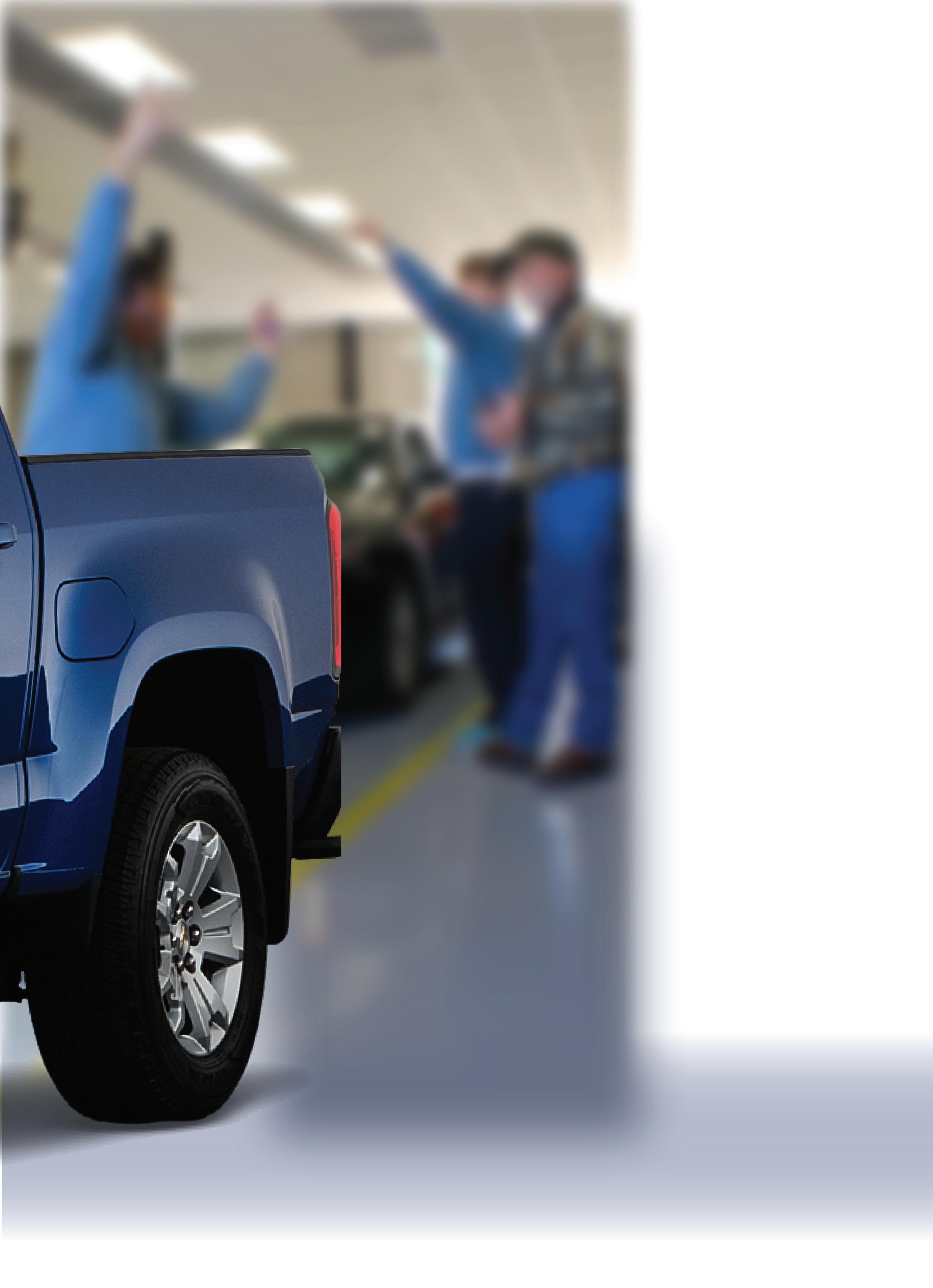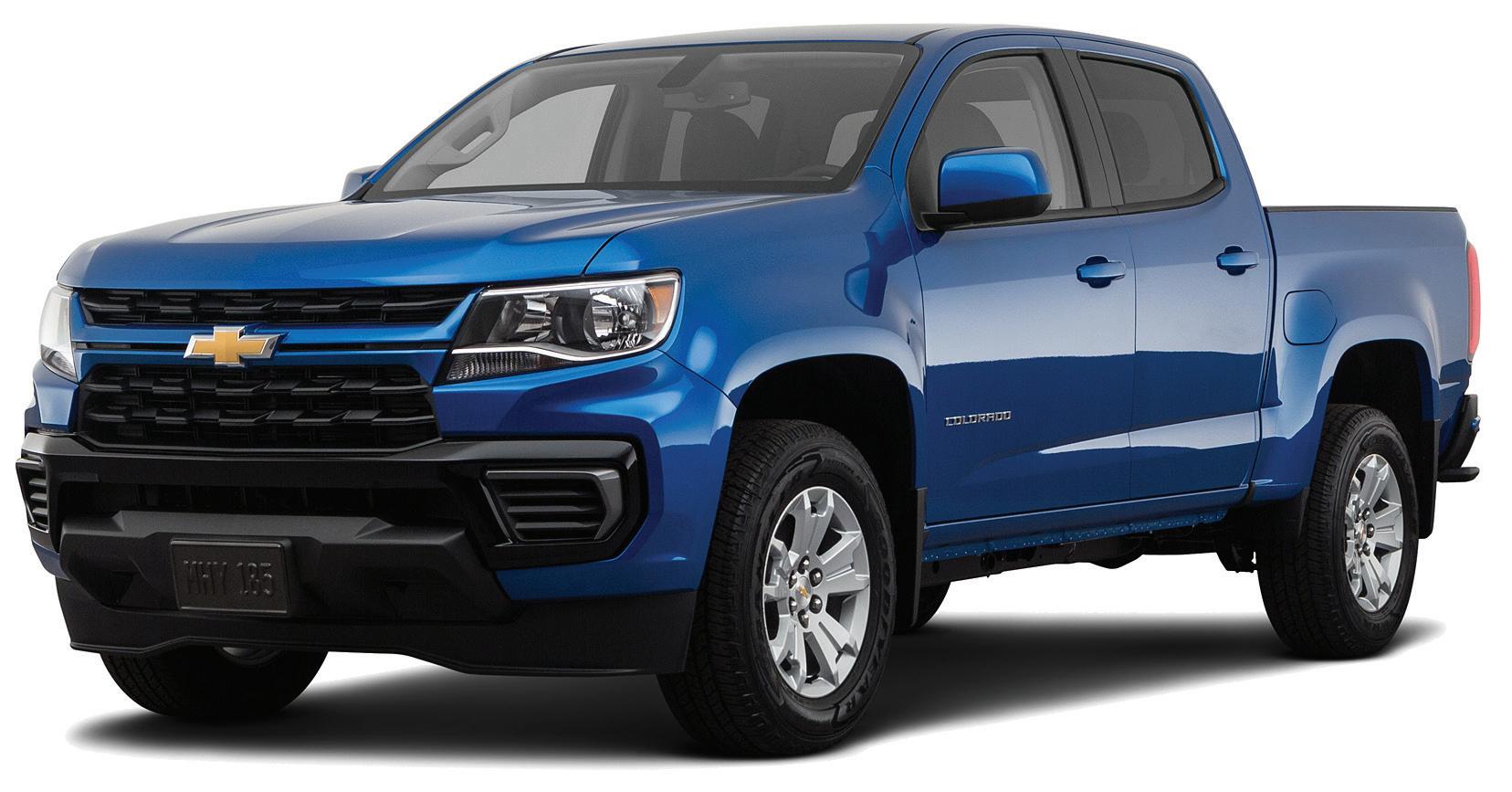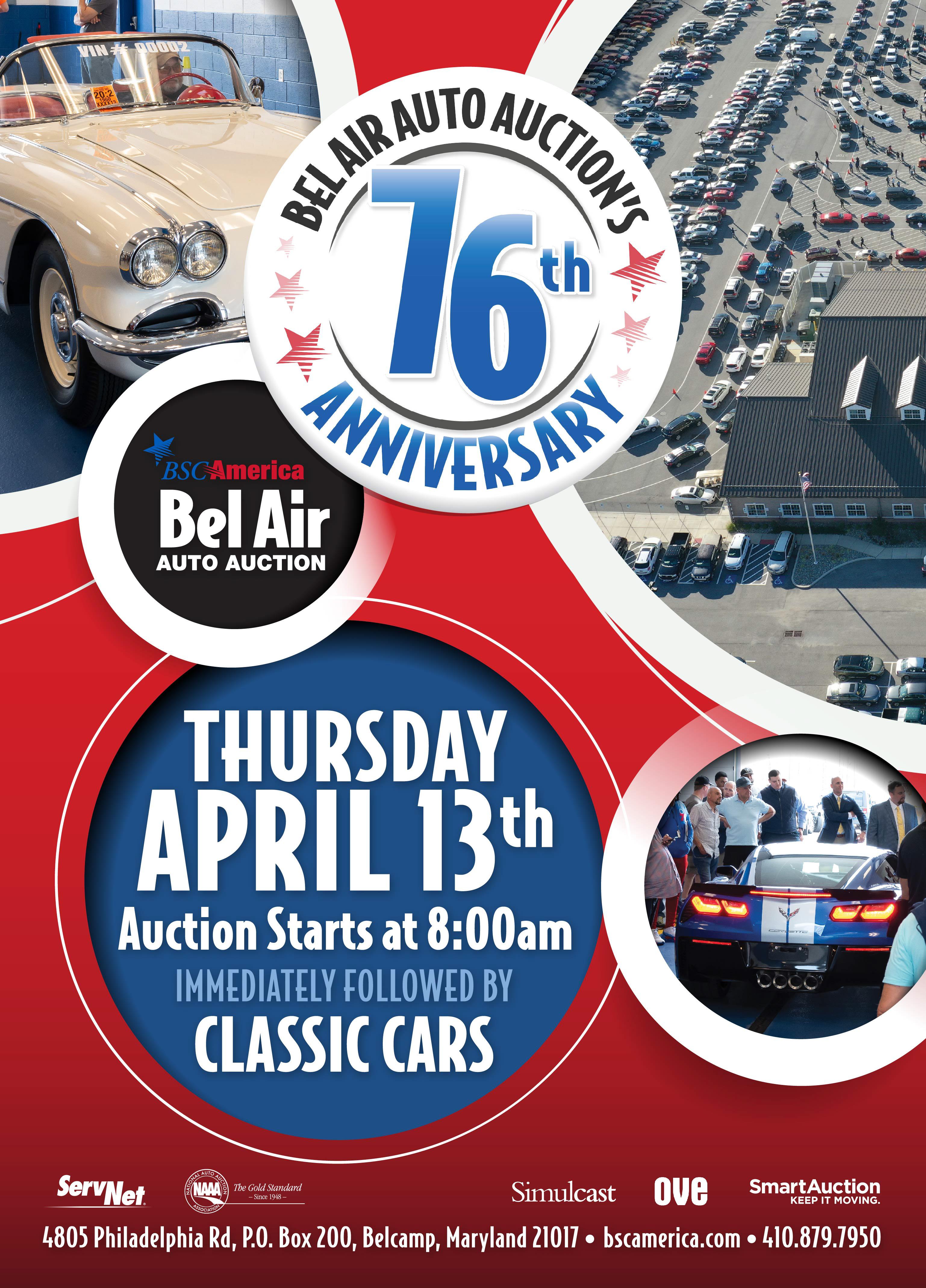UCN Used Car News



requirements in the retail auto industry don’t go away, they just seem to expand.
The new year brings a couple of major requirements for independent dealers and some proposed rules, which would also mean big changes.
The Federal Trade Commission under the Biden Administration has been active in pushing for new regulations while also inflicting heavy punishments on those who don’t follow the current rules.
The FTC’s most recent proposed rule is to ban non-compete clauses and it has scheduled a Feb. 16 public hearing for people to discuss their experience with such clauses.
The FTC’s proposed rule generally would prohibit employers from using noncompete clauses, includ-





ing independent contractors and anyone who works for an employer, whether paid or unpaid. Among other things, the rule would also require employers to rescind existing noncompete clauses and actively inform workers that they are no longer in effect.
Adam Crowell, president and general counsel of ComplyNet, discussed some of the regulatory challenges in the recent Used Car News Podcast.
“With this administration, we have three Democratic FTC Commissioners and currently there’s only one Republican because the other one stepped off the board and hasn’t been replaced (at press time),” Crowell said.
This current version of the FTC is acting aggressively to push rules affecting auto sales.
“With this administration they
have a lot of things they are trying to get accomplished and there are a lot of rules they are trying to get passed,” Crowell said.
These rules are likely to get passed, but it’s too early to know their final form or when they will get passed.
Crowell said it’s important for the used-car industry to pay attention to this process, from issues involving dealer markups, the Fair Credit Lending Policy and even with F&I products.

The elephant in the room now is the FTC’s proposed Motor Vehicle Trade and Regulation Rule.
It is something the FTC would like published on every dealer’s website.

That would include every add-on product the dealer sells, what the price of those products are and – if there is no set price – then the range
Continued on page 3
for all your dealership needs!
• Local Point of Service in YOUR market
• Bulk Purchase Program
• Payment Stream Advances (6-15 months)
• Aged Pay Share Program that gives you Capital and Cash Flow!
• Floorplan for select BHPH Dealers
• Servicing for all types of Auto Receivables
1.877.570.8857
of costs offered to consumers.
The FTC would like a standardized set price and markup.
“They are focusing very much on how the dealers are setting the price of a vehicle and how it’s being reflected online in advertisements and in social media.”
Last month, Mike Stanton, president and CEO of the National Automobile Dealers Association, warned about the broad scope of this proposed rule.
For example, under this requirement, if a customer called and asked if a dealer had an F-150 in stock, the dealer would be required to cite every F-150 they have in stock, including the stock number and offering price.
“It’s insane,” Stanton said.
Crowell’s big concern is that the rule proposes a very set process for dated time stamps and forms that have to be utilized by dealers.
“It’s going to be very, very difficult to be in compliance if this rule passes,” he said.
If someone asks about the price of a car, the dealer will have to provide what is called an “offering price,” the calculation would be every single fee that goes into the vehicle price if the customer wanted to buy the vehicle right now, Crowell said.
Dealers will have to start talking about an “offering price” long before a dealer even starts discussing F&I or payments.
However, there has been a lot of pushback by national and state associations, as well as possible litigation if the rule is passed.
The rule was introduced last summer. The FTC called it a “first step toward establishing a set of guidelines that would provide consumers with key protections against dealers who unlawfully charge junk fees without their consent or engage in bait-and-switch advertising.”
The proposed measures would:
• Ban bait-and-switch claims.
• Ban fraudulent junk fees.
• Require full upfront disclosure of costs and conditions.
The proposal came at a time when the FTC made news by dropping heavy penalties against dealerships over the past year.
Last November, the FTC sent payments totaling more than $9.8 million to consumers who were harmed by Illinois-based Napleton Automotive Group’s junk fees and discriminatory practices.
In October, the FTC announced Maryland-based Passport Automo -


tive Group paid more than $3.3 million for tacking on hundreds to thousands of dollars in illegal junk fees to car prices and for discriminating against Black and Latino consumers with higher financing costs and fees.
A month earlier, the commission sent payments totaling $415,000 to customers of Tate’s Auto, based in Arizona and New Mexico, for allegedly deceiving consumers about payment information and falsified information on consumers’ financing applications.
An auto marketing company was also banned from the auto industry entirely by the FTC after it found that they illegally misled consumers to believe their websites were affiliated with a government stimulus program, among other misdeeds.
The auto industry got some reprieve this year when the FTC extended the deadline for compliance of the new Safeguards Rule. The
original deadline had been in January and now is delayed until June 6.
The Safeguards Rule requires nonbanking financial institutions, such as mortgage brokers, motor vehicle dealers, and payday lenders, to develop, implement, and maintain a comprehensive security program to keep their customers’ information safe.
One change is dealers must have a written risk assessment that identifies security risks, confidentiality, and integrity of customer information. Dealers need to look at their systems for handling consumer information along with paper and physical records. Dealers must identify risks to the systems, evaluate the adequacy of existing controls for addressing risks and identify how these risks can be mitigated.

Dealers must name an individual
who is qualified to head up their information security program. Qualifications will depend on the size and complexity of a dealer’s information system. The individual must have some level of information security training and knowledge. The individual must report in writing, at least annually, to the dealer’s board of directors or equivalent concerning the businesses’ Safeguards program and effectiveness. Also, all customer data must be encrypted at all times.
Several other requirements are also part of the revised rule and dealers should consult with their attorney or a compliance firm.
The Equal Employment Opportunity Commission also monitors wrong doing, recently levying a $62,500 fine on a franchise dealer for paying a female employee less than the male employee.
education, which is mandated by the state,” Melendez said. “For VIADA, once a year we have a state convention in October, then in April we do what we call a Dealer Education Day.”
Like the convention, the Dealer Education Day has vendors but it is a single day event, compared to the multi-day state convention, Melendez said.
One of the benefits of attending either of the two annual association events is they each offer the statemandated continuing education course for free.
“That way we get more people to visit with our vendors,” Melendez said.
BY JEFFREY BELLANTbehalf of their industry.
The association’s lobbying and its

efforts to boost dealer education are things Executive Director Alvin Melendez is proud to talk about.
Melendez is also prepping for Virginia IADA’s Dealer Education Day event that occurs once a year in April.
“This is separate from continuing
The agenda for this year’s education event was still in the works at press time, but Melendez was able to provide a preview.
“Obviously, I always have people come in from National Independent Automobile Dealers Association to speak,” he said. “I’m also having Justin Osburn (CEO of Automotive Reinsurance Concepts) speak on sales training. Cory Collins will talk about F&I menu selling.
“We’re also going to have Virginia’s executive director of the Motor Vehicle Board, William Childress, who’s going to speak on the best practices for dealers to follow so they don’t get in trouble with the agency.”
Childress will discuss audit reviews, consumer complaints and the most common violations.
For years, Virginia IADA headquarters had been in Virginia Beach, but relocating to Richmond, the state capital, has been important.
“It’s closer for lobbying,” he said. “It’s closer to government agencies. We’re 15 minutes away from the headquarters of the Department of Motor Vehicles and the Motor Vehicle Dealer Board.
“Our relationship is phenomenal, the way it has changed, just by having our location there where we can make our voices heard.”
A little over a year ago, the group also hired Gonzalo Aida as its own full-time lobbyist to deal with government affairs.
“He’s done an outstanding job,” Melendez said.
The association also has a political action committee (PAC), which distributes about $20,000 to $30,000 per year to various lawmakers.
“We hand carry every donation and we let them know who we are,” Melendez said.
The association also prepared a document for lawmakers that Continued
Emeritus Colleen Fitzgerald, Publisher
Editorial: Jeffrey Bellant, Managing Editor Ed Fitzgerald, Staff Writer
Advertising: Shannon Colby, Account Manager Tony Moorby Columnist:
Circulation: subs@usedcarnews.com


Production: Tom Savage, Production Manager Cee Lippens, Web Master Used Car News is published every third week.
Subscribers: We print advertisements as sent to us by auctions and other advertisers. It is not possible to verify the correctness of listed vehicles in auction ads. Most lists are partial and all lists are subject to last minute changes by auto auctions, so before travelling a long distance for a particular auto auction event, contact the auction by telephone for a fax of vehicles in the sale.
Used Car News assumes no guarantees or liabilities concerning the accuracy of any advertisements. All Rights Reserved. Reproduction in any form is prohibited without the written consent of the publisher.
OUR ADVERTISING APPROVAL POLICY Payments from first time advertisers must accompany the insertion order. Distribution is guaranteed by the USPS. The advertising reservation deadline is 12:00 noon Thursday, 11 days prior to the issue cover date.
Ad materials are due by 5 pm Friday, 10 days prior to issue cover date. For advertising specifications please email colleen@usedcarnews.com.
illustrates the economic impact used-car dealers have on the state of Virginia.
The statistics provided in the document help the association’s independent dealers make their case to lawmakers.
The report shows that 82% of the licensed car/truck/motorcycle dealers in Virginia are independent dealers.
The report states 91% of independent dealers are family-owned and operated.
The average hourly pay for a fulltime employee of an independent dealership is $18 per hour.
Melendez added that 58% of independent dealers have been in business over 20 years.
For customers looking for auto repairs, more than half of independent dealerships have service shops.
“Last year in Virginia – just in Vir-
ginia, not out of state – we sold over 324,000 cars and collected over $10 million in title and license fees, not including taxes,” Melendez said.
Independent dealers in the state also employ just under 20,000 people, he added. Nearly 80% of independent dealers are small businesses that employ five or fewer employees.
“We collect over $200 million in tax revenue from vehicle sales in the Commonwealth,” Melendez said.
The association points out to lawmakers that while there are only 444 franchise dealers in Virginia, there are almost 3,400 independent dealers.
Aida uses these stats to convince lawmakers that independents deserve the attention that normally goes to new-car stores.
“We are the majority of car dealers, so why are you talking to (franchise dealers) and not to us?” Melendez

said. “We are the majority.”
Virginia IADA wants its members to be better businesspeople and uses its events and educational offerings to achieve that.
For example, last year the group introduced a bill for continuing education that is more than just a boxchecking exercise.
“Instead of being a video that people just sign up for and watch to pass, ours is instructor-led so people can really learn something, you know,” Melendez said. “So, we cut it down from six hours to four hours, but it’s an interactive class.
“Now when they’re taking the classes, they are loving it. It’s interactive and they can ask questions and learn something they didn’t know or something they had forgotten. So, we’re elevating education in the Commonwealth.”
When that bill – House Bill 316 – was introduced, it passed unani-
mously through all committees, Melendez said.
The association helped pass a bill to fight the problem of catalytic convertor theft, which is a nationwide epidemic.
“Last year we helped pass a bill that makes catalytic converter theft a Class 6 felony in Virginia,” Melendez said.
The new punishment could include up to five years in prison and hefty fines. It also includes a requirement that recyclers who buy catalytic converters must get a driver’s license and have the name, brand and VIN of the car, Melendez said.
Melendez has the benefit of having been a longtime car dealer, which has helped him in his job as the association director.
Originally from Puerto Rico, Melendez’s automotive career began with a summer internship at a Maryland Ford dealership in 1986.
Independent dealers in Washington state are lobbying against a bill that would force used car dealers to provide an express warranty on vehicles with up to 125,000 miles.
The Washington State Independent Automobile Dealers Association is leading the fight to kill this legislation.
“It’s not really going to help at all,” said Rick Olson, WSIADA director of operations.
The bill originated after a customer bought a $13,000 car last year and brought it back a short time later because it reportedly needed $3,000 in repairs, Olson said.
The dealer pointed to the as-is buyer’s guide and implied warranty waiver, saying he did not have to do the repair.
The consumer went to an investigative reporter who contacted the dealer, resulting in the dealer buying the car back, Olson said.
But the reporter went forward with a story and questioned why a lemon law didn’t apply to used cars. He went to the state attorney general on the issue, Olson said.
Washington Attorney General Bob Ferguson partnered with a state representative to introduce HB 1184, the Used Motor Vehicles Express Warranties Act. It would require a warranty on used vehicles based on a sliding scale depending on the mileage at the time of purchase.
For example, a car sold with less than 40,000 miles would have a warranty of 90 days or 3,750 miles. From 40,000 to 79,999 miles, the warranty would drop to 60 days or 2,500 miles. Then cars with 80,000 to 124,999 miles would be covered for 30 days or 1,250 miles.
Vehicles with 125,000 miles or more would be exempt from the warranty.
The bill was introduced on Jan. 12. Olson said the bill moved into House Consumer Protection and Business committee earlier this year.
“On Jan. 18, we attended a hearing and had three members from our board of directors – who are car dealers – testify about aspects of the (issue) that lawmakers hadn’t thought about,” Olson said.
For example, the bill would allow a dealer three chances to fix a vehicle or they have to buy the vehicle back and pay 15 cents per-miledriven back to the customer, Olson said.
Association members testifying had several questions about how the proposed law would work in practice. How would a dealer do license fee returns?
How would they return the state business and operation tax?
How would a return affect a customer’s credit score since the credit already takes a hit when they buy it?
“There were a whole bunch of things the committee members didn’t know would attach to this bill,” Olson said.
The bill was amended a couple of times.
Another issue that came up involved the requirement for repairs that only franchise dealers can do, which will end up taking a lot of time.
The biggest misconception over this issue is consumers who think lemon laws apply to used car purchases.
“That happens all the time,” Olson said.
Forcing these warranties on consumers is just going to affect affordability.
The concerns and objections did have an impact, Olson said.
WSIADA had strong support at the original hearing on the bill.
“We had our board president, vice president, treasurer along with (representatives from) two auctions who spoke remotely and someone from the Washington Retail Association who testified against the bill,” Olson said.
Other people who gave input on the bill include 30 against and five for, he said.
“Just based on that, they knew the bill wasn’t going to move out of the House,” Olson said.
“As far as we know, the House side of the legislation is dead. It’s not going to leave the committee.”
However, Ferguson was able to find a sponsor for the bill on the Senate side, Olson said.
“That one’s going to be Senate Bill 5610 and it’s the same (language),” Olson said.
“This bill would just push consumers to buy from other consumers instead of dealers. It also will raise legal issues.”
What happens to the Used Car Buyer’s guide is another question the legislation doesn’t answer.
At press time, Olson said WSIADA’s lobbyist expected there would be a hearing later this month.








Randy Crase, owner, Crase Auto Connection, Channahon, Ill.
“We opened in June of 1992. We have been lucky enough to buy a few of the adjacent properties.

“We have an average of 8085 cars on site, and always seem to have another 20 or 30 waiting.
“Two years ago, we sold over 60 a month. Last year we were just under 50. Our two-year averages for vehicle type sold are 45% trucks, 35% SUV and 20% cars.
“We definitely sell more domestics, we’re 40 miles outside of Chicago, kind of a rural town. Chevys and Fords are good for our demographics.
“Reconditioning has gone through the roof. It hurts our turn a bunch. We used to source most of our vehicles from new-car stores, and
after COVID hit, they were keeping a lot of those cars. So, a lot of the inventory we were getting at auction needs a lot more recon. Our average is nearly $1,400 a car, compared to a little over $800 two years ago.
“We have a service department, which helps keep some money in our pockets. We are now getting about 50% of our vehicles via auction. I have a few favorite auctions, Manheim Chicago and Rockford Auto Auction. They both have really unbelievable management and support teams.

“We seem to do better with units that are at least 3 years old. Mileage varies. Last week we sold a 2020 Equinox with 18,000 miles, the next day we sold a 2012 Ford F-150 with 200,000 miles. We try to keep our inventory under 100,000 miles.
“The last few years, down
payments were a thing of the past. What I am seeing recently is the banks tightening up. Cash is king.
“As far as advice, I don’t think I would tell anyone to get into this business right now. I believe we are going to see a lot of corrections in the next year or so. And if you’re getting in on the seat of your pants (like I did in 1992) you might be looking for trouble.
“Join your state associations, without the help from them, I would not be in business today. Be transparent. If you bought a car with an accident, make sure they know. If you spent a bunch of money on recon make sure they know. Price your cars by the market, not by what you want to make.
“The last car we sold was a 2017 Ford Escape Titanium with 89k, all-wheel drive, for $16,500 plus fees.”
Ricardo Gardea, owner, Cars Plus, El Paso, Texas
“I’ve been in this business for 40 years. COVID definitely changed our business, quite a bit. We’re doing more online, especially our advertising.
“We usually keep about 40 vehicles in inventory. We sell about 20 a month.
“SUVs are No. 1 for us, cars are No. 2. We don’t sell that many trucks.
“We sell domestics most of the time, we don’t do much with imports.
“About 60 percent of our business is buy-here, payhere.
“We do it a little different for down payments. I usually ask for 40 per cent of the price of the vehicle. That average is usually about $3,000, so it depends on the vehicle.
“I go to the Manheim auc-
Compiled by Ed Fitzgeraldtions in El Paso and Dallas.
“I try to buy cars as clean as possible, but my reconditioning costs probably average about $600. I have mechanics in the back so we do as much in-house as possible. For tires, we send it out to the shops.
“I’m looking for model years of 2012 to 2016. Most of my cars will be over 100,000 miles, about 120,000 or 130,000. We use driveway. com.
“We recently had a yellow 2006 Mini Cooper and a 2017 Chrysler Pacifica family wagon with back captain seats.
“New dealers have to do a lot of research on the rules and regulations. They’re stricter now than before. You have to be in compliance.
“The last car I sold was a 2012 Chevy Equinox. It had 135,000 miles. We sold it for $7,990 with $3,000 down.”

Kyle Egbert, general manager, Dealers Auto Auction of Idaho LLC., Nampa, Idaho

“We’ve been in business since 2001. Right now, we run five to six lanes.
“January was pretty good actually. Our consignment was steady and our sales were up 13%. We were pretty good out of the chute.
“We’re running almost 500 units a week. We’re almost at a 70% conversion rate.
“It has been a little surprising. It felt like guys just weren’t buying and then here’s the first of the year and everybody’s buying.
“Traditionally, our sale has been a lot more dealer consignment, but it has been starting to (add) more fleet. I think we’re up to a mix of 70% dealer and 30% fleet/ lease.
“We’ve seen an uptick in
repos. They’re coming back.
“We also have a GSA sale once a month. Compared to last year, it’s ticking up as well. I think they’re getting some orders filled. Last year, we might have done 20 to 30 units per month, right now we’re doing about 40 to 50.
“We’ll get a (variety) of GSA vehicles. You’ll get cargo vans, shuttle vans, oddball construction pieces, heavy-duty equipment and a lot of XL-package trucks.
“Dealers seem to be really optimistic. I think January started pretty well for these guys. They’re selling and they’re active. Our franchise dealers are pretty active and our independents have certainly picked up from where they were at in December.
“The average price in the lanes is $13,000 to $14,000. We do get our fair share of trucks.
“So, it’s a pretty positive
feeling over here.
“We’re optimistic, but we’re also realistic that things could get challenging. We are well-positioned to handle the challenges.”
Doug Rodriguez, general manager, Dealers Auto Auction of Chattanooga, LLC., Chattanooga, Tenn.

“David Andrews purchased this auction in 2014. The sale has been around since 1992. We have six lanes.
“Last year we found it a little bit more challenging than the year prior.
“Weekly volumes are anywhere from 500 to 650 units, which is an increase from last January 2022.
“I can tell you in January 2023, we had an outstanding month.
“But many things have changed for us. We took on
Compiled by Jeffrey Bellant
Volkswagen and Audi in a much larger capacity in October of last year. That means we’re managing their employee leasing program. Since the only U.S. plant for Volkswagen is right here in Chattanooga, we are managing all of the brand new cars that come in. We’re inspecting them and preparing them pre-delivery for the customers and employees.
“So, our role with Volkswagen has tripled.
“We’ve always been a 50% or 55% fleet/lease commercial accounts auction. Holman, the former ARI, is a huge customer here. We also have many other commercial accounts.
“Overall, we’re generally $12,000 to $15,000 per unit sales price in the lanes.
“We’ve been running anywhere from 65% to 75% conversion rates, which is significantly higher than
January 2022. So, we’re seeing increases across the board. I don’t think I’ve seen conversion rates as high as they were in 2021. They dropped off in 2022.
“But, at least for January 2023, so far, we’re experiencing higher conversion rates and higher prices for vehicles sold.
“We draw anywhere from 350 to 400 dealers in the lanes and another 200-250 online.
“I think dealers are optimistic that we’re going to have an actual tax season this year. I think dealers are more optimistic that they’ll see a bump in February and into March and April.
“We have a GSA sale the first week of every month. I expect volumes to be higher this year. We also run an account for the Tennessee Valley Authority, with three sales a year.”











ADESA Boston
March 3, 17, 24, 31
508-626-7000
ADESA Charlotte
March 9, 23
704-587-7653
ADESA Chicago
March 3. 31
847-551-2151
ADESA Cincinnati/Dayton
March 7
937-746-4000
ADESA Golden Gate
March 7
209-839-8000
ADESA Indianapolis
March 7, 21
317-838-8000
ADESA Kansas City
March 7, 21
816-525-1100
ADESA Lexington
March 16
859-263-5163
ADESA New Jersey
March 9, 23
908-725-2200
ADESA Salt Lake
March 14
801-322-1234
ADESA Tulsa
March 10
918-437-9044
ADESA Washington DC
March 1
703-996-1100
Columbus Fair AA
March 8, 15
614-497-2000
Manheim Atlanta
March 9, 15, 22, 23
404-762-9211
Manheim Dallas
March 1, 15, 28, 29
877-860-1651
Manheim Denver
March 1, 29
800-822-1177
Manheim Detroit
March 9, 23
734-654-7100
Manheim Fredericksburg
March 2, 16
540-368-3400
Manheim Milwaukee
March 1, 15, 29
262-835-4436
Manheim Minneapolis
March 22
763-425-7653
Manheim Nashville
March 8, 14
615-773-3800
Manheim Nevada
March 10
702-730-1400
Manheim New Jersey
March 1, 15, 29
609-298-3400
Manheim New Orleans
March 15
985-643- 2061
Manheim Orlando
March 7, 14, 21, 28
800-822-2886
Manheim Palm Beach
March 15, 16
561-790-1200
Manheim Pennsylvania
March 3, 9, 10, 17, 23, 24, 31
800-822-2886
Manheim Phoenix
March 2, 16, 30
623-907-7000
Manheim Pittsburgh
March 1, 29
724-452-5555
Manheim Riverside
March 2, 14, 16, 28, 30
951-689-6000
Manheim Seattle
March 8
206-762-1600
Manheim Southern California
March 9, 23
909-822-2261
Manheim Tampa
March 9, 23
800-622-7292
Manheim Texas Hobby
March 9, 23
713-649-8233
Southern AA
March 1, 29
860-292-7500
Manheim Atlanta
March 22
404-762-9211
Manheim Dallas
March 28
877-860-1651
Manheim Milwaukee
March 1, 29
262-835-4436
Manheim Nashville
March 8
615-773-3800
Manheim Nevada
March 10
702-730-1400
Manheim New Jersey
March 1, 29
609-298-3400
Manheim Orlando
March 28
800-822-2886
Manheim Palm Beach
March 15
561-790-1200
Manheim Pennsylvania
March 9, 23
800-822-2886
Manheim Riverside
March 2, 16, 30
951-689-6000
Manheim Seattle
March 8
206-762-1600
Manheim Atlanta
March 22
404-762-9211
Manheim Dallas
March 28
877-860-1651
Manheim Milwaukee
March 1, 29
262-835-4436
Manheim Nashville
March 8
615-773-3800
Manheim Palm Beach
March 15
561-790-1200
Manheim Pennsylvania March 9, 23
800-833-2886
Manheim Riverside
March 2, 16, 30
951-689-6000
Manheim Seattle
March 8
206-762-1600
ADESA Boston March 17
508-626-7000
ADESA Charlotte
March 9
704-587-7653
ADESA Salt Lake
March 14
801-322-1234
Columbus Fair AA
March 8
614-497-2000
Manheim Dallas
March 15
877-860-1651
Manheim Denver
March 1, 29
800-822-1177
Manheim Fredericksburg
March 2
540-368-3400
Manheim New Jersey
March 15
609-298-3400
Manheim Orlando
March 21
800-337-8491
Manheim Pennsylvania
March 10, 24
800-833-2886
Manheim Pittsburgh
March 1, 29
724-452-5555
Manheim Seattle
March 8
206-762-1600
Manheim Southern California
March 9, 23
909-822-2261
Southern AA
March 1, 29
860-292-7500
Manheim Atlanta
March 15
404-762-9211
* The tradename Jaguar Financial Group and the Jaguar logo are owned by Jaguar Land Rover North America, LLC (JLR) or its affiliates and are licensed to JPMorgan Chase Bank, N.A. (Chase). Auto finance accounts are owned by Chase.
* The tradename Land Rover Financial Group and the Land Rover logo are owned by Jaguar Land Rover North America, LLC (JLR) or its affiliates and are licensed to JPMorgan Chase Bank, N.A. (Chase). Auto finance accounts are owned by Chase.
* The tradename Subaru Motors Finance (SMF) and the Subaru logo are owned by Subaru of America, Inc. (Subaru) or its affiliates and are licensed to JPMorgan Chase Bank, N.A. (Chase).Auto finance accounts are owned by Chase.

* The tradename Maserati Capital USA and the Maserati logo are owned by Maserati North America, Inc. (Maserati) or its affiliates and are licensed to JPMorgan Chase Bank, N.A. (Chase). Auto finance accounts are owned by Chase.
* The tradename Aston Martin Financial Services and the Aston Martin logo are owned by Aston Martin Lagonda of North America Inc. (Aston Martin) or its affiliates and are licensed to JPMorgan Chase Bank, N.A. (Chase). Auto finance accounts are owned by Chase.

Neither JPMorgan Chase Bank, N.A. nor any of its affiliates are affiliated with ADESA, Inc. or Manheim, Inc. Each auction is solely responsible for their website content, sales events, promotions, fulfillment and operation of the auction.
©2023 JPMorgan Chase Bank, N.A. Member FDIC 3/23

A government department is going to embroil us in a new social argument – one that will seethe with invective for a while as people’s tempers boil over.
The U.S. Consumer Product Safety Commission is considering whether to regulate gas stoves due to health concerns from indoor air pollution.
They are “considering” ceasing production of new gas stoves on the basis that they could be considered dangerous as an indoor appliance, emitting noxious fumes and gases into a house’s atmosphere!
So, some nincompoop panjandrum in D.C. who wouldn’t know the benefits or beauty of cooking with gas, wants to dictate that anyone who loves to cook and be in total control in the kitchen should cede that joy to an electric
piece of equipment that’s as useful as a chocolate firescreen.
As an enthusiastic home cook, this gets me really fired up! I know electric range users are keen on their stoves, but they don’t know any better!
Seriously, keeping an electric cook-top looking pristine is even more difficult than cleaning its gas counterpart.
The tiniest blemish shows up like a wart on a hog’s backside and smears are almost impossible to eliminate.
Burnt jam is like molten lava, which then turns to that black volcanic rock and permanently forms new land! Cleaning equipment necessities would keep a used car reconditioner happy.
Then there’s the question of control – it barely exists
with electric – by the time you’ve turned the burner up to warm your leftovers, Kilauea has turned them to incinerated ashes. Turn the burner down to simmer and you end up with Antarctica - nothing.
It’s almost impossible to have just a warm setting with electric tops, even a low setting is just ‘off’ for a greater amount of time than it’s ‘on’ – it’s a question of controlling ‘all or nothing’. With gas, on the other hand, you can go from Dante’s inferno down to a bare flame, keeping a stock blipping with a bubble every five seconds for hours at a time.

I’ve had both over the years and can attest to the efficacy of gas ranges all the way back to when we had one in our apartment, after the war, in a kitchen no bigger than a handkerchief!
As kids, our kitchen table abutted the side of the stove. My brother or I sat on the draining board next to the sink to stir the oatmeal for twenty minutes on cold winter mornings before school, keeping warm at the same time leaning over the flames.
Neither of us was ever overcome with fumes!
Extraction systems, nowadays, are amazing; our current set-up could suck a golf ball through a garden hose. It’s quiet too – the fan unit sits under the house about fifty feet away from the stove’s downdraft fitting. I can cook onions and stand by the cook top and not smell a thing.
As to noxious fumes, I’d almost guarantee, for anyone living in town, the fumes outside the front door are far worse than anything generated within.
Even worse if you live by the power station that’s making the electricity for your “clean” electric stove. I think we should hold these administrators’ feet to the fire until they agree to leave this issue on the back burner!






